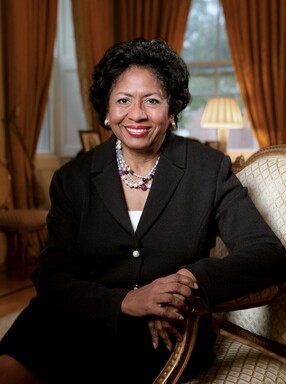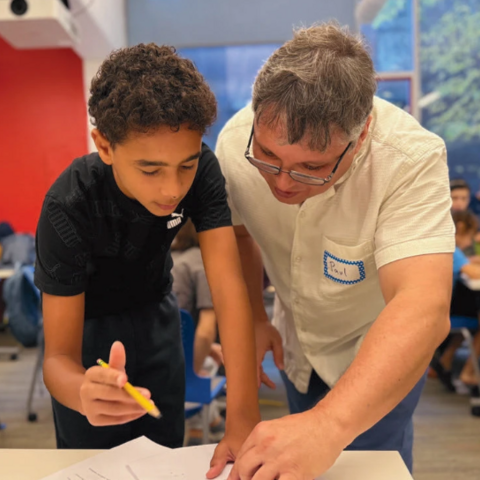Enthusiasm for Learning
Ruth Simmons, PhD ’73, became the first African-American president of an ivy league institution. But without the mentors who instilled in her a love of learning and desire to aim high, she may not have succeeded.
You’ve said that you owe much of your success to mentors who encouraged you. Who were they and how did they help?
My greatest mentor was my mother. But because my parents grew up in a world in which Blacks were disenfranchised, they didn’t imagine that an African American child from Texas could benefit from education as I eventually did. Luckily, I had a series of influential teachers who opened my eyes to the possibilities. These teachers, in spite of segregation and the lack of civil rights at that time, believed that it was important for children—Black children—to be well-educated and passed their enthusiasm for learning onto me. They directed me to aim high and suggested that I could go to college, which I couldn’t have believed were it not for their insistence.
You once commented that everyone you knew was a maid so you aspired to work in an office. When did you start aiming for something greater?

At a certain point, the learning took over as I tried to find an antidote for the racist world I grew up in, where people were rejected based on superficial elements and biases. After high school, my thirst for learning about the world animated me, but I didn’t have any idea what I was going to do. I loved language because it was a way past the narrowness I was trying to combat, learning a different language and culture, understanding better what motivated people and how to bridge the divide across those differences. When I started applying for graduate school, I began thinking, perhaps I’ll go into the academic life.
So coming to Harvard was a way to accomplish that goal, but you eventually became an academic administrator. Was that planned or serendipitous?
It was purely serendipitous. After graduating from Harvard, I joined the romance languages faculty at the University of New Orleans and realized that language instruction was not well-organized. I told my colleagues that we needed to do this differently and then, oddly enough,
got appointed to make it better. This got noticed by the dean who asked me to join his staff as an assistant dean.
I accepted the position because during the mid-1970s, the school had almost no Black faculty, and no Black students studied in my area. I felt an obligation to the rest of the student body who didn’t interact with me.
As president of Smith and of Brown, you launched pathbreaking programs designed to improve the academic experience and influence employment opportunities. What role do you think colleges and universities should play in the US and the world?
Our task in universities is to provide the best education we can, but we also need to look beyond our walls to see what’s happening in society. If we are not doing that, we can be held accountable for not fulfilling our mission as a whole. We need to provide an avenue for students to prepare themselves for the reality they will ultimately face. I felt this acutely because I grew up in a heavily racialized society with very little promise for African Americans. My teachers prepared me for something I could not see or anticipate—that society would change and opportunities would develop for students like me. I think colleges must do the same for students today.
At Smith College, we knew that engineering could not continue to exclude women and minorities to the extent that it had in the past. How could we anticipate the inevitable change in the engineering workforce and shape programs that could serve as a change agent for engineering as a whole? That’s what we were trying to do by creating an engineering program within a women’s college. I believe strongly that universities should try to do such things.
You’re now the head of the board of the Holdsworth Center, which provides training for public school leaders in Texas. How did you become involved and why is it important?
We need to support public schools and improve the resources available. Most of all, we must not forget that it is our fundamental, moral responsibility as a nation to provide an avenue for the poorest of the poor to be educated and empowered.
At the Holdsworth Center, we are focusing on leadership by providing continuing education and additional support for superintendents and principals. We are also building a team around them by involving district boards. Over five years, we will have touched a majority of these leaders. Leadership played an important role in my experience, certainly in my time as a student in the Texas public schools. It was leadership that made the difference.
So, you’ve come full circle in a way?
That’s the way I feel. I’m grateful for this opportunity because when I came back to Houston and visited my old neighborhood, I wanted to find a way to show gratitude for what I was given. When the Holdsworth Center asked if I wanted to be involved, it didn’t take much for me to say absolutely, yes.
Get the Latest Updates
Join Our Newsletter
Subscribe to Colloquy Podcast
Simplecast





